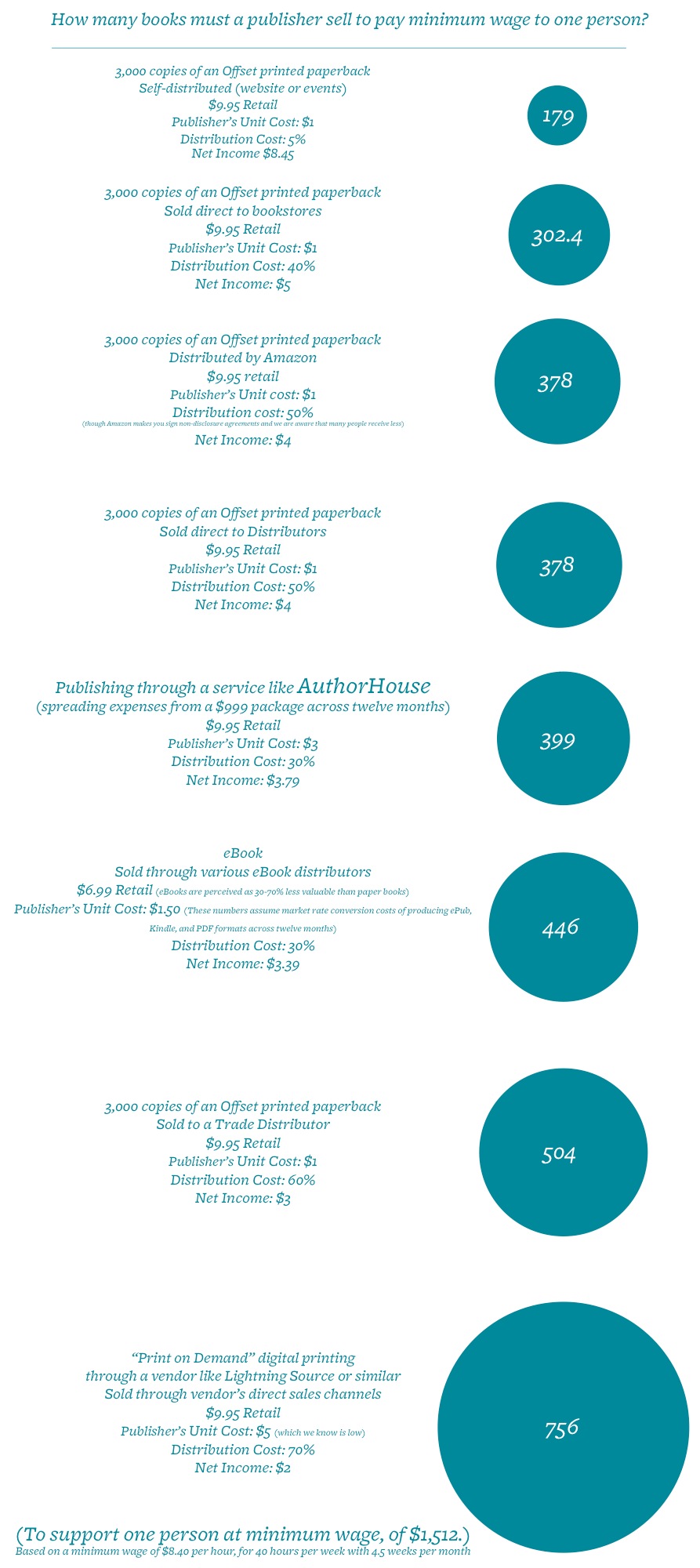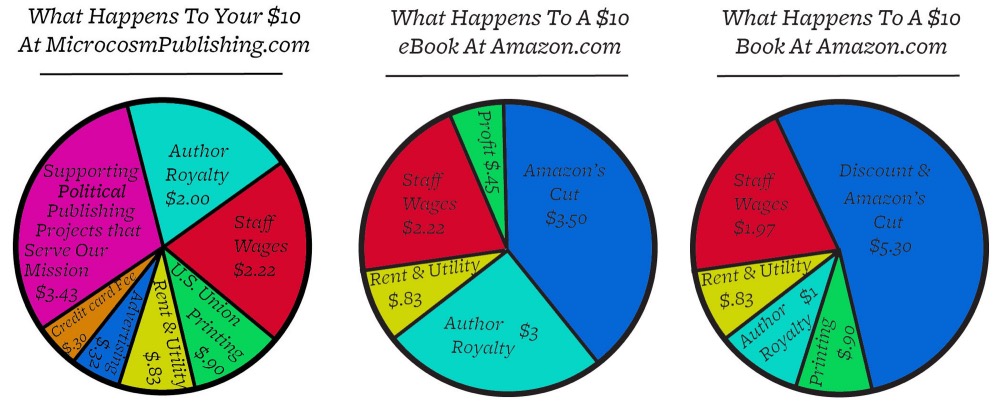Daily Cosmonaut #7: Is Microcosm Sustainable?

Due to Microcosm’s unique history as a record label and peddler of photocopied publications based out of milk crates, we’ve been equally ignorant of and immune to the changing culture and climate of more mainstream publishing houses. When innumerable peers and beloved presses were going under due to lack of distributor payments or collapsing financial support during the recession, we wondered why this wasn’t affecting us more. Don’t get me wrong, we were undeniably harmed and had to adapt by major changes in the U.S. economy, but to the tune of 20% of our income, not 50-90% of our income like the horror stories that we were hearing.
But these experiences leave us with a question: How sustainable is Microcosm? We’ve written about this a bit in the past, like in our 2014 annual report, when we first got back on track, but let’s look at this a bit further. In this article about comic shops, you can see a particularly bleak and skeptical view of selling paper in brick and mortar. We created these graphics to further illustrate the point that where you shop does matter when you are supporting authors:

Because of this, we have a loyal and supportive following that would rather support us than the Big A and are interested and invested in our mission and what we publish. As you can see on the chart to the right (especially if you click on it), the kind of channels that a book is sold through make a major difference in how many you have to sell to support yourself. In our case, the money that comes in each day is the same as the money that we pay out to our authors, our bills, our printer, and our staff. Admittedly, we run a pretty close game most months on our $34,000 in monthly operating expenses and have spent the last few years adjusting the pie so that our staff can get paid more in an increasingly expensive city. And also admittedly, if we did not have so many successful backlist titles, we would not be able to publish new books every month. Our roughly 25 bestselling books pay for everything we do. So we are here for the long haul but mostly because we closely watch our data and are responsive to a changing industry. Wait, scratch that. We’ve often been ahead of the industry in changes and that is probably the number one reason we are still here.